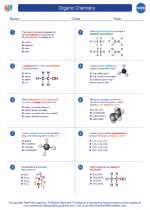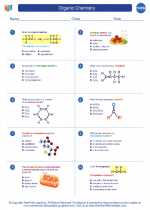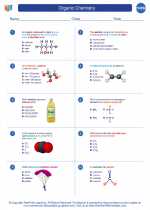Denitrification: A High School Chemistry Study Guide
Introduction to Denitrification
Denitrification is a biological process that involves the conversion of nitrates (NO3-) into nitrogen gas (N2) or nitrous oxide (N2O) by anaerobic bacteria. This process occurs in soil, sediment, and aquatic environments, and plays a crucial role in the global nitrogen cycle.
Key Concepts
- Nitrate Reduction: During denitrification, nitrate is reduced to gaseous nitrogen compounds, which are then released into the atmosphere.
- Anaerobic Conditions: Denitrification occurs in the absence of oxygen, typically in environments with low oxygen levels such as waterlogged soils or sediments.
- Microbial Activity: Anaerobic bacteria such as Pseudomonas, Paracoccus, and Bacillus are responsible for carrying out the denitrification process.
- Environmental Impact: Denitrification helps to mitigate the environmental impact of excess nitrates in agricultural runoff and wastewater by converting them into inert nitrogen gas.
Denitrification Process
The overall denitrification process can be summarized in the following steps:
- Nitrate Reduction: Anaerobic bacteria use nitrate as an electron acceptor, converting it to nitrogen gas or nitrous oxide.
- Production of Nitrogen Gas: The reduction of nitrate results in the production of nitrogen gas, which is released into the atmosphere.
- Role in Nitrogen Cycle: Denitrification completes the nitrogen cycle by returning nitrogen gas to the atmosphere, closing the loop of nitrogen transformations in the environment.
Significance of Denitrification
Denitrification has several important ecological and environmental implications:
- Nitrate Removal: It helps in removing excess nitrates from soil and water, preventing eutrophication and its associated ecological problems.
- Atmospheric Nitrogen: By converting nitrates to nitrogen gas, denitrification contributes to the replenishment of atmospheric nitrogen, which is essential for plant growth and ecosystem functioning.
- Wastewater Treatment: The process of denitrification is utilized in wastewater treatment plants to reduce nitrate levels before discharge.
Study Tips
To better understand denitrification, consider the following study tips:
- Review the steps involved in the denitrification process and understand the role of anaerobic bacteria in this process.
- Explore the environmental implications of denitrification, including its impact on nitrogen cycling and ecosystem health.
- Research examples of denitrification in different ecosystems and its relevance to agricultural practices and water quality management.
- Practice solving related chemistry problems to reinforce your understanding of nitrogen transformations and microbial processes.
[Denitrification] Related Worksheets and Study Guides:
.◂Chemistry Worksheets and Study Guides High School. Organic Chemistry
Worksheet/Answer key Organic Chemistry
Organic Chemistry  Worksheet/Answer key
Worksheet/Answer key Organic Chemistry
Organic Chemistry  Worksheet/Answer key
Worksheet/Answer key Organic Chemistry
Organic Chemistry 

 Worksheet/Answer key
Worksheet/Answer key
 Worksheet/Answer key
Worksheet/Answer key

The resources above cover the following skills:
PHYSICAL SCIENCE (NGSS)
Matter and Its Interactions
Students who demonstrate understanding can:
Plan and conduct an investigation to gather evidence to compare the structure of substances at the bulk scale to infer the strength of electrical forces between particles.